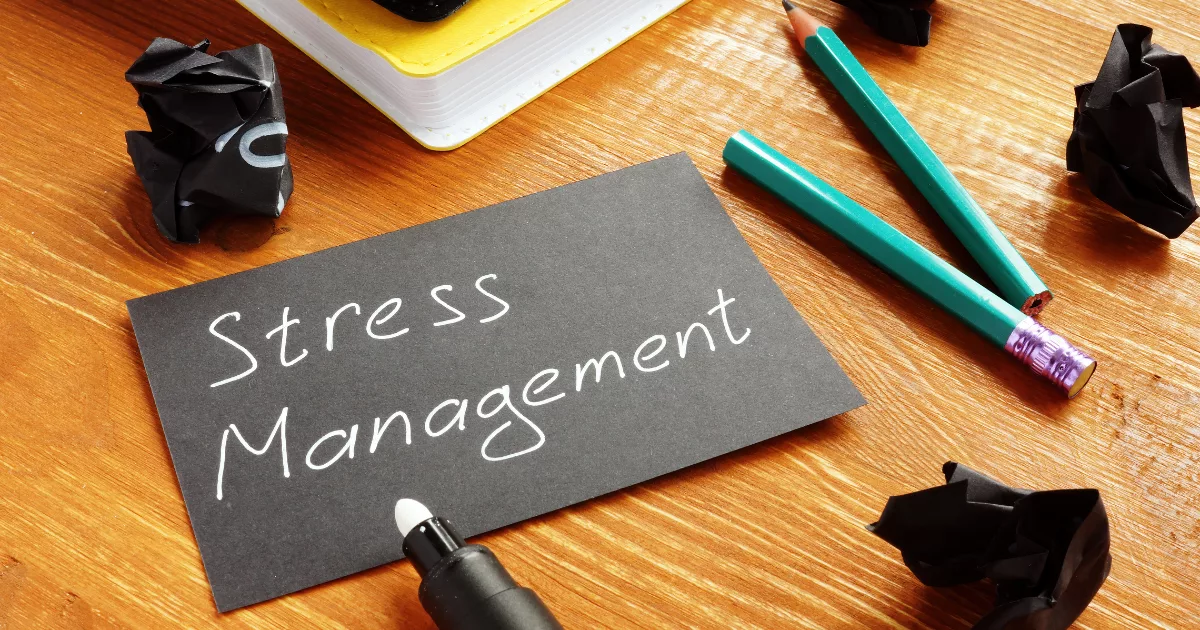Juggling work, family, social commitments, and personal aspirations can feel like a never-ending circus act. As women, we often wear multiple hats, seamlessly transitioning between roles throughout the day. While this multitasking prowess is admirable, it often comes at a cost: stress. We carry the weight of the world on our shoulders, and sometimes the load becomes too heavy. If you’re feeling overwhelmed, know that you’re not alone. This article is dedicated to you, the busy woman, offering practical and effective stress management techniques to reclaim your peace and well-being.

Understanding the Unique Stressors Women Face
Before diving into solutions, it’s crucial to acknowledge the unique stresses that disproportionately affect women. Beyond the general pressures of modern life, women often experience:
- The Mental Load: This invisible burden involves planning, organizing, and remembering everything for the family and household. From scheduling doctor’s appointments to remembering birthdays and ensuring there’s milk in the fridge, the mental load can be exhausting.
- Societal Expectations: Women often face pressure to be perfect—the perfect mother, wife, employee, friend. These unrealistic expectations can lead to feelings of inadequacy and stress.
- Hormonal Fluctuations: Hormonal changes throughout life, from menstruation to pregnancy and menopause, can significantly impact mood and stress levels.
- Caregiving Responsibilities: Women are often the primary caregivers for children, elderly parents, or other family members. This responsibility can be incredibly rewarding but also incredibly stressful.
- Workplace Inequality: Despite progress, women still face challenges in the workplace, including pay gaps, discrimination, and a lack of representation in leadership positions. These issues can contribute to chronic stress.
Recognizing the Signs of Stress
Stress manifests differently in everyone. It’s essential to recognize your personal stress signals so you can take action before things escalate. Common signs include:
- Emotional: Irritability, anxiety, mood swings, difficulty concentrating, feeling overwhelmed, hopelessness.
- Physical: Headaches, muscle tension, fatigue, sleep problems, changes in appetite, digestive issues, heart palpitations.
- Behavioral: Social withdrawal, increased use of alcohol or drugs, changes in eating habits, procrastination, neglecting responsibilities.

Effective Stress Management Techniques: Your Toolkit for Calm
Now, let’s explore some powerful stress management techniques you can incorporate into your busy life. Remember, it’s not about achieving perfection; it’s about finding what works best for you and making small, sustainable changes.
1. Prioritize Self-Care (No, It’s Not Selfish!)
Self-care is not a luxury; it’s a necessity. It’s about taking the time to recharge and nurture yourself. This could include:
- Dedicated “Me Time”: Even 15 minutes a day can make a difference. Read a book, take a bath, listen to music, or simply sit in silence.
- Healthy Diet: Nourishing your body with whole foods, fruits, vegetables, and lean protein can improve your mood and energy levels. Limit processed foods, caffeine, and alcohol, which can exacerbate stress.
- Regular Exercise: Physical activity is a powerful stress reliever. Aim for at least 30 minutes of moderate-intensity exercise most days of the week. This could be anything from walking and jogging to yoga and dancing.
- Sufficient Sleep: Aim for 7-8 hours of quality sleep each night. Establish a regular sleep schedule and create a relaxing bedtime routine.
- Mindfulness and Meditation: These practices can help you become more aware of your thoughts and feelings, reducing stress and promoting inner peace. There are many guided meditation apps available to get you started.
2. Manage Your Time Effectively
Feeling overwhelmed by a never-ending to-do list? Time management techniques can help you regain control:
- Prioritize Tasks: Use a planner or to-do list to identify your most important tasks and tackle them first.
- Break Down Large Tasks: Instead of feeling overwhelmed by a big project, break it down into smaller, more manageable steps.
- Learn to Say No: It’s okay to decline requests that will overload your schedule. Protect your time and energy.
- Delegate When Possible: Don’t be afraid to ask for help from your partner, family members, or colleagues.
- Schedule Breaks: Don’t try to power through your day without breaks. Take short breaks throughout the day to stretch, walk around, or simply clear your head.

3. Cultivate Healthy Relationships
Strong social connections are essential for well-being. Make time for the people who support and uplift you.
- Spend Time with Loved Ones: Connect with your family and friends regularly. Laughter and shared experiences can be great stress relievers.
- Communicate Openly: Talk to your partner, friends, or a therapist about your feelings and concerns. Don’t bottle things up.
- Set Boundaries: Protect yourself from toxic relationships that drain your energy and contribute to stress.
4. Practice Relaxation Techniques
Incorporate relaxation techniques into your daily routine to calm your mind and body:
- Deep Breathing: Practice deep, slow breaths to calm your nervous system and reduce anxiety.
- Progressive Muscle Relaxation: This technique involves tensing and releasing different muscle groups to relieve tension.
- Yoga and Tai Chi: These practices combine physical postures, breathing exercises, and meditation to promote relaxation and well-being.
- Spending Time in Nature: Connecting with nature has been shown to reduce stress and improve mood. Take a walk in the park, go for a hike, or simply sit in your backyard and enjoy the fresh air.
5. Seek Professional Help When Needed
If you’re struggling to manage stress on your own, don’t hesitate to seek professional help. A therapist can provide you with coping strategies and support to navigate challenging situations.
6. Embrace Imperfection and Practice Self-Compassion
Remember, you’re human. You’re not going to be perfect all the time. Be kind to yourself and practice self-compassion. Forgive yourself for mistakes and celebrate your accomplishments, no matter how small.
7. Find Joy and Purpose
Engage in activities that bring you joy and purpose. This could be anything from pursuing a hobby to volunteering in your community. Finding meaning and purpose in your life can buffer the effects of stress.

Creating a Personalized Stress Management Plan
The key to effective stress management is finding what works best for you. Experiment with different techniques and create a personalized plan that fits your lifestyle and needs. Start small and gradually incorporate new strategies into your routine. Remember, it’s a journey, not a destination. Be patient with yourself and celebrate your progress along the way.
A Final Word to My Fellow Women
We are strong, resilient, and capable of amazing things. But we also deserve to prioritize our well-being. By implementing these stress management techniques, you can reclaim your peace, enhance your resilience, and live a more fulfilling life. You are worth it.
Discover more empowering articles on our blog!
10 Tips On Handling Anxiety: Reclaim Your Life From Stressors
How To Decrease Stress In Your Life: 8 Helpful Tips
How to Be Happy in Life: 15 Things to Dump Right Now
- 10 Ways to Overcome Procrastination and Get Things Done – 03/03/2025
- How to Overcome Imposter Syndrome and Thrive – 27/02/2025
- 10 Time Management Hacks You’ll Wish You Knew Sooner – 27/02/2025









Leave a Reply